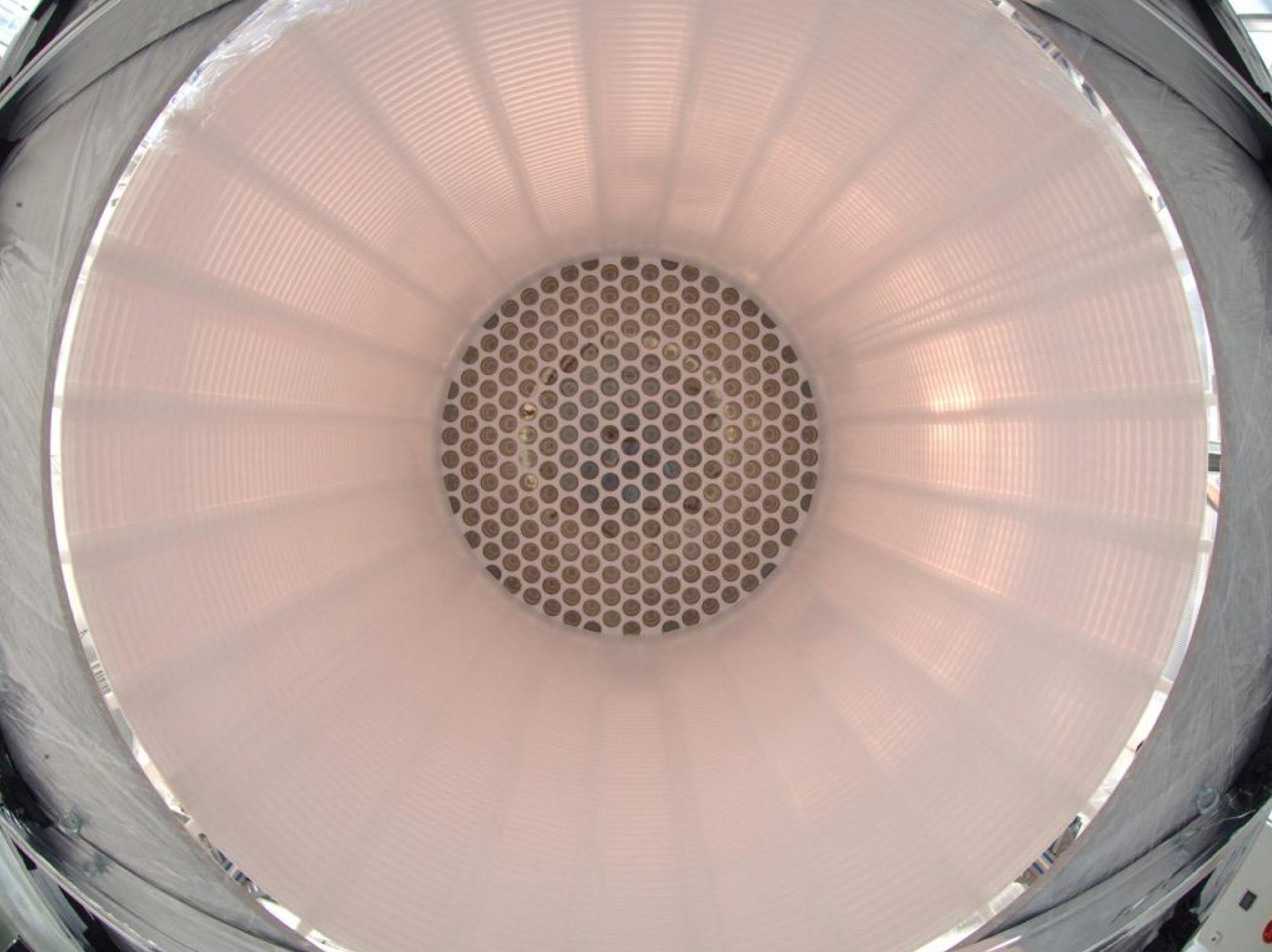First measurement of a nuclear recoil signal from solar neutrinos with XENONnT
2024-07-11
July 11, 2024
The XENON collaboration
Institute for Space-Earth Environmental Research, Nagoya University (ISEE)
Kobayashi-Maskawa Institute for the Origin of Particles and the Universe, Nagoya University (KMI)
Kavli Institute for the Physics and Mathematics of the Universe, The University of Tokyo (Kavli IPMU)
Institute for Cosmic Ray Research, The University of Tokyo (ICRR)
Graduate School of Science, Kobe University
First measurement of a nuclear recoil signal from solar neutrinos with XENONnT
Scientists from XENON Collaboration, an international scientific collaboration including Prof. Yoshitaka Itow, Division for Cosmic Ray Research, Institute for Space-Earth Environmental Research (ISEE), Nagoya University; , and Prof. Shingo Kazama and Dr. Masatoshi Kobayashi, Kobayashi-Maskawa Institute for the Origin of Particles and the Universe (KMI), Nagoya University; the Kavli Institute for the Physics and Mathematics of the Universe (Kavli IPMU), The University of Tokyo; the Institute for Cosmic Ray Research (ICRR), The University of Tokyo; and the Graduate School of Science, Kobe University, announced the first measurement of a nuclear recoil signal from solar neutrinos with XENONnT, the currently running detector for a direct dark matter search. This result was presented at the 15th international workshop on the idetification of dark matter (IDM2024) held at L’Aqiula on July 10th 2024 Japan Standard Time.
Signal of xenon nuclei scattered-off by solar neutrinos is faint and extremely rare, therefore requires long-term measurement with a highly sensitive massive detector. The XENONnT detector, the world-leading direct dark matter search experiment, is a massive liquid xenon detector with excellent detector performance and backgrouod event rejection capability, making it the ideal instrument to detect such faint and rare signals.
In this report, 3.5 ton-years data aquired by the XENONnT detector were analyzed, scattering events of xenon nuclei by neutrinos were identfied with 0.35 % chance proababilty if it is only due to fluctuation of background events. This achievement is not only a first observation of nuclear recoils by natural neutrinos in itself, but also an important milestone that demonstrates the high performance of the dark matter search experiment as a detector which is sensitive to such rare events.
For more detail, please visit press release by XENON Collaboration:
https://xenonexperiment.org/first-measurement-of-a-nuclear-recoil-signal-from-solar-neutrinos-with-xenonnt/
Press release by KMI (in Japanese)
https://www.kmi.nagoya-u.ac.jp/blog/2024/07/11/5673/
The XENON collaboration is an international experimental group including Nagoya University, the University of Tokyo, and Kobe University from Japan.
Japanese groups are contributing for the gadolinium loaded water cerenkov based neutron veto system initially developed by Super-Kamiokande group; the liquid xenon purification system with the experience from the XMASS experiment; and data analysis as one of analysis coordinators.
*Our research related to XENON1T and XENONnT experiments are supported by: JSPS Kakenhi (18H03697、18KK0082、19H05802、19H05805、19H00675、19H01920、21H05455、21H04466、21H04471、22H00127、23H00104、 23K13121、24H00223、24K00659、24H02236、24H02240) , JSPS Core-to-Core program (JPJSCCA20200002), and JST FOREST JPMJFR212Q.

Inner view of the XENONnT TPC. credit: XENON Collaboration
Contact Information:
Contact Information:
XENONnT Collaboration
Website: https://xenonexperiment.org/
Email: xe-priseelngsinfnit


